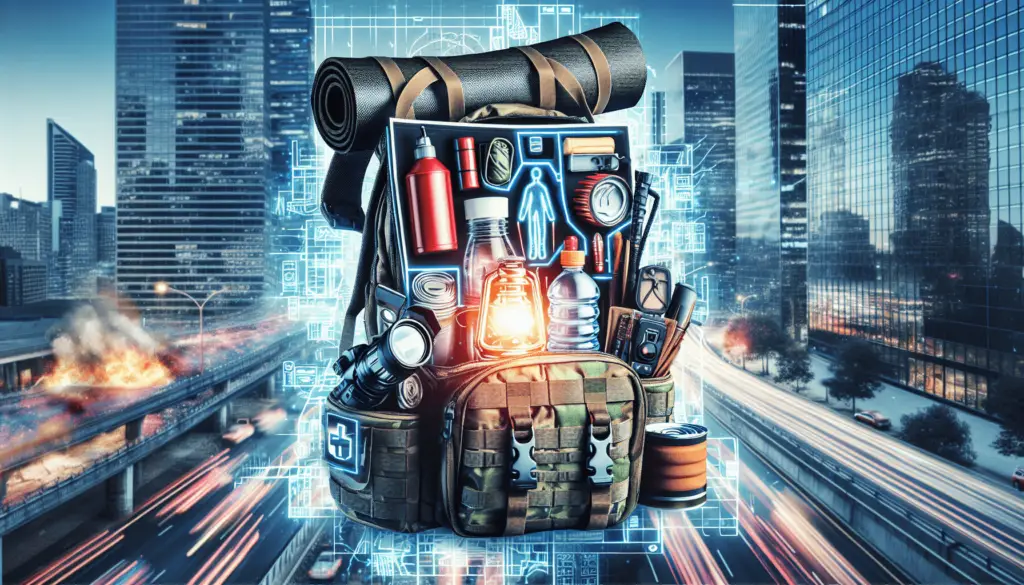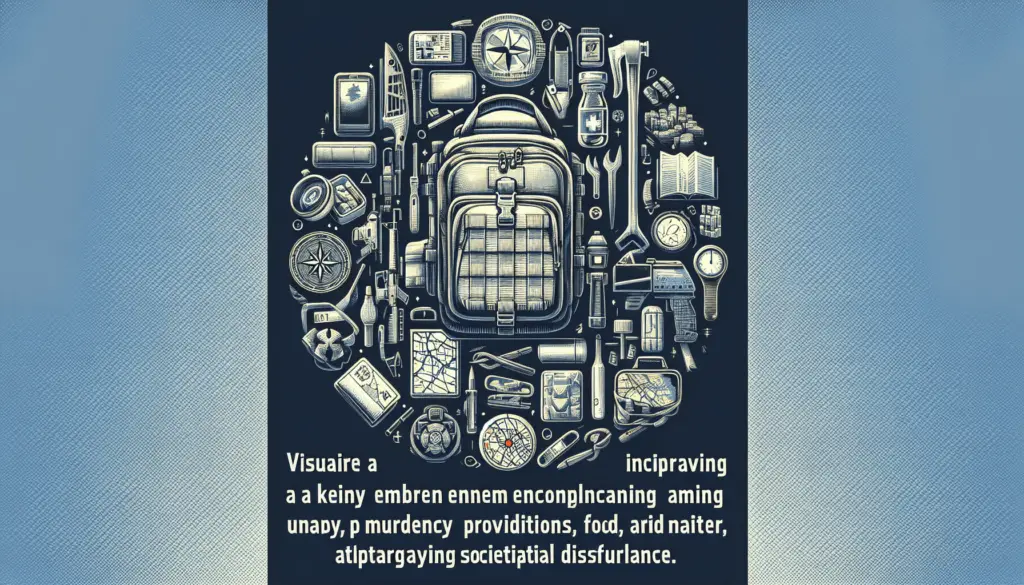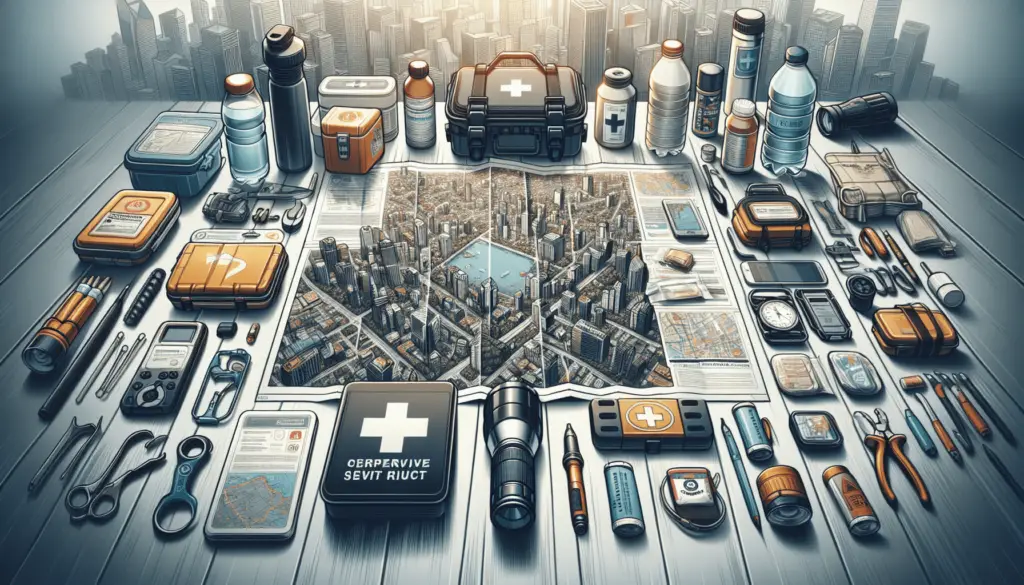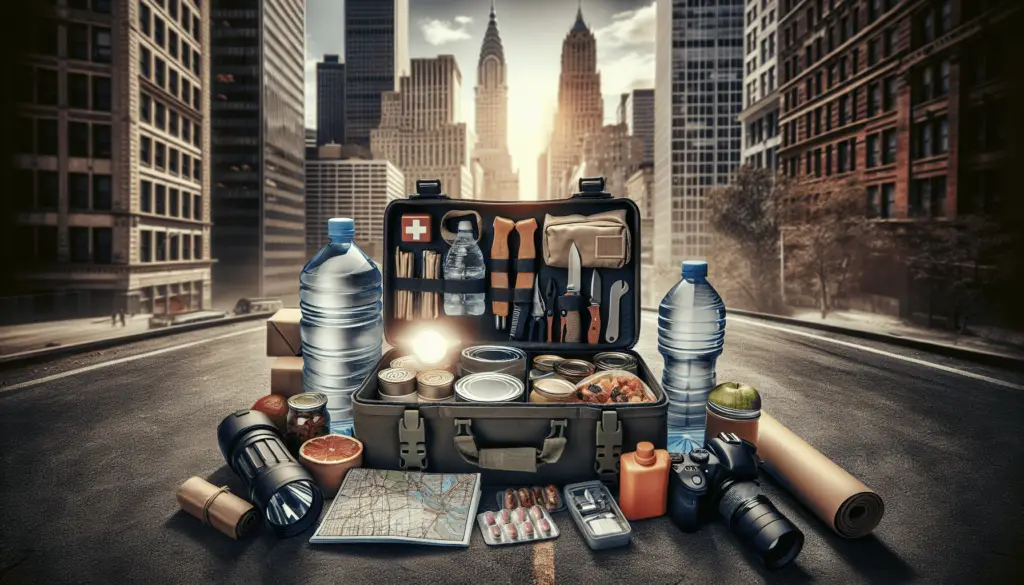Have you ever wondered what you would do if faced with civil disruption in an urban setting? In times of crisis, being prepared can make all the difference. From natural disasters to social unrest, having a plan in place can help ensure your safety and that of your loved ones. In this article, we will explore urban survival plans to help you navigate through challenging situations effectively. Let’s dive in!

Assessing the Risks: Understanding potential threats
Before you can create an effective urban survival plan, it’s crucial to assess the risks specific to your location. From earthquakes and hurricanes to civil unrest and power outages, different threats require different preparedness measures. Take some time to research the potential hazards in your area and consider how they could impact your daily life. By understanding the risks, you can better prepare for them.
Research potential threats in your area
Research natural disasters, pandemics, and other potential threats specific to your location. Understanding the risks you face is the first step in creating a comprehensive urban survival plan.
Consider worst-case scenarios
Think about worst-case scenarios and how they could impact your home, workplace, and community. By preparing for the worst, you’ll be better equipped to handle whatever comes your way.
Building a Bug Out Bag: Essentials for survival
A bug out bag is a portable kit that contains all the essentials you need to survive for at least 72 hours. Whether you need to evacuate your home or shelter in place during a crisis, having a well-stocked bug out bag can make all the difference.
Essentials for your bug out bag
Include items such as water, non-perishable food, a first aid kit, a flashlight, batteries, and a multi-tool in your bug out bag. These essentials will help you stay safe and comfortable in a variety of emergency situations.
Customize your bug out bag
Tailor your bug out bag to meet your specific needs and circumstances. Consider factors such as climate, medical needs, and the number of people in your household when choosing what to include in your kit.
Establishing Communication: Staying connected during a crisis
Communication is key during a crisis, both for staying informed and keeping in touch with loved ones. Establishing a reliable communication plan can help you navigate through urban survival situations more effectively.
Create a communication plan
Designate a meeting point for your family or household in case you are separated during a crisis. Establish alternative methods of communication, such as walkie-talkies or hand signals, in case traditional forms of communication are not available.
Stay informed
Stay informed about the latest developments during a crisis by tuning into local news and emergency alerts. Knowing what’s happening around you can help you make informed decisions about your safety and well-being.
Securing Your Home: Protecting your shelter
Your home is your sanctuary, and in times of civil disruption, securing it properly is crucial for your safety. By fortifying your home and making it more secure, you can increase your chances of weathering the storm.
Reinforce doors and windows
Install sturdy locks and security bars on doors and windows to deter potential intruders. Consider reinforcing glass with security film to make it more difficult to break.
Stock up on supplies
Maintain a supply of food, water, and other essentials in your home to sustain yourself in case of an emergency. Rotate your supplies regularly to ensure they remain fresh and usable.

Developing an Evacuation Plan: Knowing when to leave
In some situations, staying put may not be the safest option. Being prepared to evacuate at a moment’s notice is essential for your survival during a crisis.
Identify evacuation routes
Identify multiple evacuation routes out of your neighborhood or city in case roads become blocked or impassable. Have a map of your area on hand to help guide you to safety.
Know when to evacuate
Stay informed about evacuation orders and warnings from local authorities. If you are advised to evacuate, do so promptly and follow the designated routes to a safe location.
Seeking Shelter: Finding refuge in a crisis
In the event that you are unable to remain in your home during a crisis, knowing where to seek shelter is crucial. Whether it’s a designated shelter or a friend’s house, having a plan in place can help ensure your safety and well-being.
Identify nearby shelters
Research nearby shelters in your area, such as community centers, schools, or churches, where you can seek refuge in case of an emergency. Make a note of their locations and hours of operation.
Establish a shelter-in-place plan
If leaving your home is not an option, have a plan in place for sheltering in place. Identify a safe room in your home, such as a basement or interior room, where you can seek refuge during a crisis.

Protecting Your Finances: Safeguarding your assets
Financial preparedness is just as important as physical preparedness in times of civil disruption. By safeguarding your finances and important documents, you can help ensure that you have the resources you need to weather the storm.
Backup important documents
Make digital copies of important documents, such as identification, insurance policies, and financial records, and store them securely in the cloud or on a flash drive. Keep physical copies in a waterproof container.
Have cash on hand
Keep a supply of cash in small bills on hand in case ATMs are unavailable during a crisis. Having cash can help you purchase supplies or pay for services when electronic payments are not an option.
Connecting with Your Community: Strength in numbers
During times of crisis, your community can be a valuable source of support and resources. By connecting with your neighbors and participating in community preparedness efforts, you can build a network of resilience that can help you weather urban survival situations more effectively.
Get to know your neighbors
Introduce yourself to your neighbors and establish a rapport with them. Discuss emergency plans and how you can support each other during a crisis.
Participate in community preparedness initiatives
Join community emergency response teams or participate in local preparedness drills and exercises. By working together with your community, you can build a strong network of support that can help you navigate through challenging situations.

Training and Skill Building: Acquiring essential survival skills
In addition to having the right supplies and plans in place, having the skills and knowledge to survive in urban environments is essential. By training in basic survival techniques and acquiring useful skills, you can increase your chances of staying safe during a crisis.
Learn basic first aid
Take a first aid course to learn essential life-saving skills, such as CPR and wound care. Having basic medical knowledge can help you assist others in need during a crisis.
Acquire self-defense skills
Learn self-defense techniques to protect yourself and your loved ones in case of an emergency. Consider taking a martial arts or self-defense class to build confidence and skills.
By taking proactive steps to prepare for civil disruption in urban settings, you can increase your chances of staying safe and secure during challenging times. Remember to regularly review and update your urban survival plan to ensure that it remains relevant and effective. Stay informed, stay prepared, and stay safe. You’ve got this!
